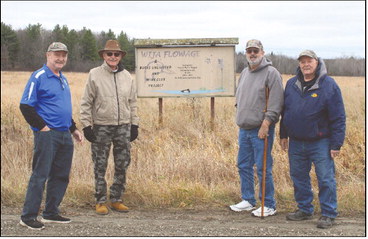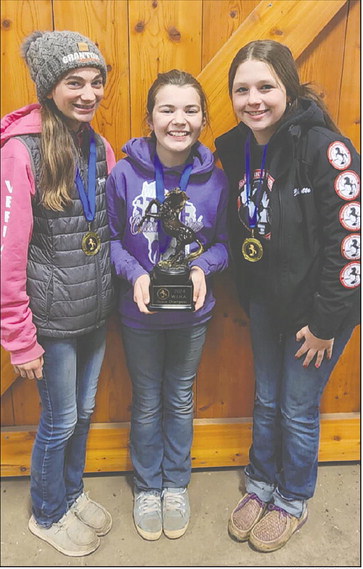Budget plan,
from p. 2
Cowles argued families don’t want the chemicals in their drinking water even if it has tested for less than the 70 parts-per-trillion (ppt) limit approved by the state Natural Resources Board (NRB).
“So you’ve got that political pressure and, you know, it could be dangerous even at a lower level. So that’s something we’ve got to wrestle with: at what level are those monies made available?” Cowles said. “You know, I’m leaning at this point to allow it to go to those communities even when it’s less than the 70 as picked by the DNR board.”
The standards the NRB approved last year were lower than the Department of Health Services’ recommendation of 20 ppt. The board, which had a majority of appointees by former GOP Gov. Scott Walker at the time, rejected the proposal in favor of the less restrictive Environmental Protection Agency standard.
Sen. Dianne Hesselbein, D-Middleton, who is also on the Senate Natural Resources and Energy Committee, said she was pleased to hear Cowles at the recent informational hearing mention a bipartisan effort to address PFAS. She said she is hopeful Republicans will support Evers’ budget proposal.
“I think one thing that that hearing showed everybody is that PFAS is everywhere. It’s not just in one corner of the state, and it really affects all of us,” Hesselbein said. “And when it comes to the health and the welfare of Wisconsinites, I would hope that we could all be on board to do as much as we can with what we have to make our water clean.”
Hesselbein said she believes Republicans are open to looking at PFAS mitigation because it’s affecting the communities they represent. “I think there’s a good way forward, and I think that they’re on board that we need to solve this problem,” Hesselbein said.
Republicans Sen. Mary Felzkowski and Rep. Rob Swearingen told WisPolitics.com they support Evers’ proposal to include $100 million for a municipal grant program in the state budget to address PFAS contamination. Both Felzkowski and Swearingen’s districts house the town of Stella, where the DNR last month found levels of PFAS contamination above health guidelines in 24 of 38 private wells sampled.
The agency issued health advisories for those wells, making the homeowners eligible to apply for the state’s Well Compensation Grant Program. The program provides funding up to $16,000 per grant to help Wisconsinites pay to replace, rebuild or treat contaminated wells. There is an income limit of $100,000.
Felzkowski, who is a JFC member, in a statement to WisPolitics.com ahead of Evers’ budget address said although she supports Evers’ proposal, “the devil is always in the details.”
“We may need to look at how the Well Compensation Fund is structured to ensure that we can utilize those dollars in the correct way, but I’m hopeful we can work together to get something accomplished,” the Irma Republican said. Felzkowski said the challenge for the town of Stella is that the source of contamination is still unknown. “The state responded swiftly by providing everyone with clean drinking water, but this is only a short-term solution to a long-term problem,” she said. Swearingen told WisPolitics.com now that JFC co-chairs have decided to start the budget from base levels, “the funding is kind of out the window.” He said he will actively work with JFC members, including Felzkowski, to support the funding, which he said he is still open to supporting, despite the additional funds Evers announced this week. “I think he gives us some interesting options to explore. But at the end of the day, I’ll have to work with the Joint Finance Committee to see, you know, what’s going to be palatable for the state,” Swearingen said. He also noted 11 new positions Evers had requested, which he said “might be excessive,” arguing the governor might be taking advantage of PFAS to boost positions at the DNR. Swearingen last week told WisPolitics. com he thinks his Republican colleagues are more conscious of the problem than before. “But I would also argue that unless it directly affects you and your district, it isn’t something that’s necessarily immediately on your front burner,” Swearingen said. He said clean drinking water isn’t a partisan issue, so the discussion could come down to how much to spend addressing PFAS. “I think everybody agrees that you should be able to go to your kitchen sink and turn the tap on and the water should be potable. And so I like to think that we could certainly have some agreement here,” Swearingen said. “My guess is if there’s any argument, it’ll be how much one side wants to spend versus the other.”
For more, visit WisPolitics.com. The Capitol Report is written by editorial staff at WisPolitics. com, a nonpartisan, Madison-based news service that specializes in coverage of government and politics, and is distributed for publication by members of the Wisconsin Newspaper Association.





